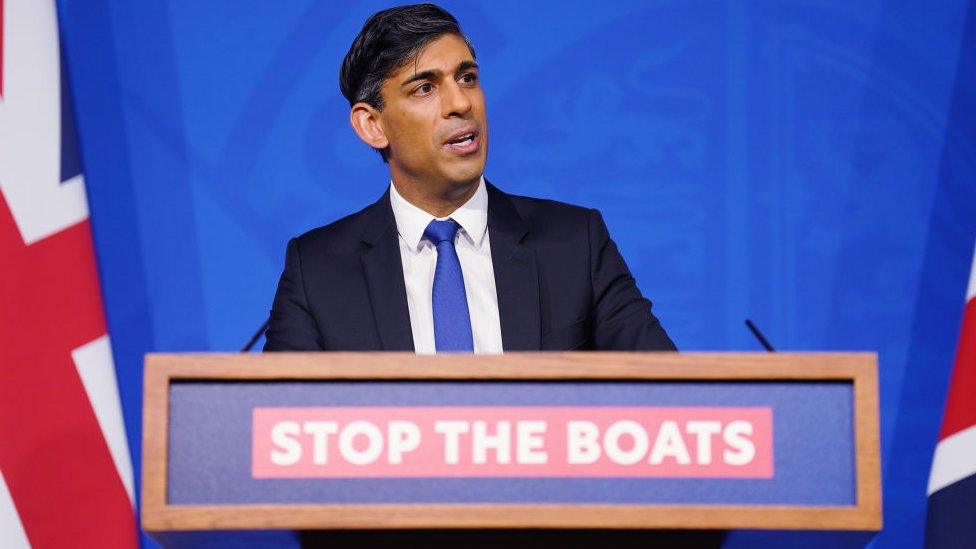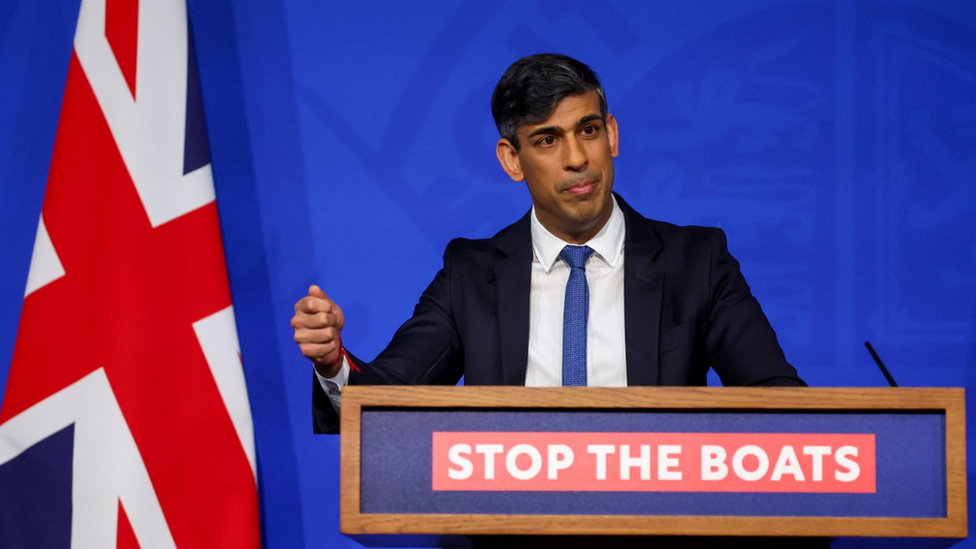Chris Mason: Rwanda rebellion is an assault on Sunak's authority
- Published
- comments

Three resignations. And a substantial chunk of Conservative MPs - 60 - defying the prime minister.
That is a hefty assault on Rishi Sunak's authority.
Just moments before a vote on one of the big proposed changes to the government's Rwanda plan, a WhatsApp pops up on my phone.
I am standing on a balcony overlooking Parliament, about to go on the Six O'Clock News to say two Conservative deputy chairmen faced the sack if they backed one of the amendments to what ministers want.
I had been told that all Conservative MPs holding either government positions or party positions would be sacked if they defied the whips - those in charge of discipline - and voted for changes Downing Street did not endorse.
But events were moving faster than that.
The WhatsApp message from a senior source tells me they have resigned.
Lee Anderson and Brendan Clarke-Smith had walked before they were pushed, writing a joint letter to Mr Sunak saying so.
Two Tory MPs with party roles giving them up, as another Tory MP, Jane Stevenson, on the lowest rung of the government ladder as a parliamentary private secretary, packed that job in too - and defied the government as well.
For almost two years now, under three prime ministers, the plan to send some asylum seekers to Rwanda had made news.
Stymied by the courts, it has become the eye-catching, flagship bit of legislation which has generated noise, rancour, resignations, courtroom drama, passionate rhetoric and ministerial schleps to Kigali.
But how many migrants have made it to east Africa? None.
That in itself has provoked another round of all of the above and brings us to where we are now: ministers having another go at trying to make it work while plenty on their own Conservative benches fear it is doomed to fail just like the previous attempts.
Right now, all this boils down to one big question: how many of those 60 Conservative MPs willing to back a proposed change to the Rwanda plan are actually willing to reject the whole thing outright in a crucial vote expected on Wednesday night?
If half of them were willing to do so, the plan - and Mr Sunak - would be in deep, deep trouble.
So far, only a handful have said publicly they are prepared to vote the plan down.
But if ministers clock that number is ratcheting up, what do they do then? Try to find an accommodation with the rebels, but in so doing risk irritating those on the opposing wing of the party? It's not easy.
The persuading, the arm-twisting, the cranking up of the stakes is only just beginning as the whips try to squeeze the number willing to nuke the bill entirely as low as they can.
Up to now, sources in government have given off a quiet confidence there aren't the numbers to finish the plan off entirely.
But they wouldn't be human if they weren't wobbling a little after what has just happened.
Related topics
- Published17 January 2024

- Published13 June 2024

